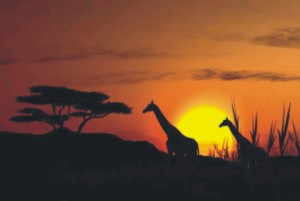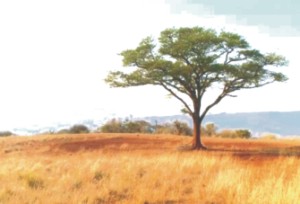| Perceptions
Bare Essentials
Andrew Morris
 He was genuinely apologetic as he pushed open the door, and there was a hint of anxiety in his eyes as they peered out from behind his glasses. “Our college” he explained, "is not very well-funded, and I'm afraid you might find the accommodation a little too basic”. Of course it was nothing of the kind: a simple, clean room, with a bed, a washstand and a wardrobe. What more could the overnight traveller ask for? It's hardly as if I expected a jacuzzi, mini-bar and supply of chocolate biscuits in the middle of provincial Bangladesh. Besides, if he thought this was basic, then he obviously knew little about my past… He was genuinely apologetic as he pushed open the door, and there was a hint of anxiety in his eyes as they peered out from behind his glasses. “Our college” he explained, "is not very well-funded, and I'm afraid you might find the accommodation a little too basic”. Of course it was nothing of the kind: a simple, clean room, with a bed, a washstand and a wardrobe. What more could the overnight traveller ask for? It's hardly as if I expected a jacuzzi, mini-bar and supply of chocolate biscuits in the middle of provincial Bangladesh. Besides, if he thought this was basic, then he obviously knew little about my past…
Now if this was a film, the screen would go wavy, there would be the sound of harp strings, and you'd find me, a whole lot younger, blinking in the harsh sunlight of an African noon. The year is 1993, and I am standing in one of the most remote places on earth, the Nacfa Valley in Eritrea, north-east Africa, where my wife and I have come to work as teachers for two years. Owing to the recently-won war of independence with Ethiopia, our school is deliberately located far away from any population centre, and we are here as part of a community of two hundred students, teachers, and staff: a sort of early version of Big Brother, except that no-one gets evicted. Over the two years, we all live together and get to know each other pretty well. We are nine hours along sandy desert roads from the capital, and a one-hour journey even from the nearest town, down winding mountain paths along which our jeep jolts and bounces.
And our accommodation? A one-room stone hut with a tin roof weighed down by rocks, half way up a mountainside. A hard bed, two wooden chairs with cheap cushions, some colourful posters on the wall, a table and a bare light bulb which serves as an attraction for every possible variety of insect at night. In this room we sleep, read, listen to the radio, prepare lessons and bathe throughout our time there. There is of course no running water we drink and wash in what we can carry up the hill from the river every day. There are also no latrines you simply make your way up the bare hillside and find a secluded place. There is electricity only in the evenings, and it's switched off abruptly at 10pm, leaving the place pitch black apart from those days when silvery moonlight means you can still see your hands. With the generator switched off, dense silence descends on the valley. Except there is no such thing as silence in an African night. Around the pond, the frogs start up a regular chorus. There are cicadas creaking in the acacia trees, and the whole place throbs with life.
In fact it's a little like waking up in the middle of the pages of National Geographic. Our room alone is populated by a range of iridescent green and blue insects and some pretty nasty browny-black ones with long stings. At night there is the sound of mice scrabbling along the bookcase, or even gnawing the pages of our precious book collection. Occasionally the dry rustle of a snake, hungry for mice. Initially we find ourselves in combat with this natural world. We take our colleagues' advice and try to mesmerise the mice by shining torches in their faces, but the little pests just laugh at us. It is only on the day that we both corner a mouse and are faced with the task of delivering the killer blow with a stick that we realise we aren't cut out for such a battle. In the end, both in tears, we manage, and a little blotch of blood spreads over the wood. But god, never again: we resolve in future to live happily ever after with all our animal friends. It's not always so cute, however: one of our school cooks, a strapping woman, one day steps on a snake the size of a shoelace, and is bitten. Half way to the hospital an hour away, she dies.
Our food for those two years consists of a diet of lentils and sour local pancake every day. Twice a day. Breakfast is dry bread (Butter, marmalade? You must be joking…) and sweet tea. On extra special days we receive a whole plate of potatoes, which taste as sweet as any mishti. And once there is even a rumour that there are tomatoes in the kitchens. We run down, but alas, it turns out to be just that, a rumour. Now and again our school truck makes the long lumbering journey up the mountains to the town, and comes back laden with oranges and beer. What more excuse does the school need for a party? We eat nothing but oranges for two days and whiz by on a vitamin-C induced high, and this is only augmented by the drink, which is consumed amongst much dancing, raucous music and general hilarity.
 As the school is populated by equal numbers of Christians and Muslims, we have twice the number of religious festivals to draw on. Each time they come round, one of the nomads from the valley is summoned, and a goat is bought. It's slaughtered, cooked and served up before you can even say “some tomatoes would be nice with that” and every part (yes, I mean every part) is eaten. Exactly a year into our stay, the headmaster gravely announces that as guests of honour, it is our solemn duty to slaughter the goat that day. We look at him in wide-eyed horror. We're utterly incompetent at killing a mouse, let alone slaughtering a goat. The goat meanwhile, is tethered to a tree, and gazes at us in a sort of trembling alarm. We make our apologies and mumble something to the effect that meat in the UK tends to come wrapped in plastic, and very much without a face on it. Our headmaster relents, but is unimpressed. “You mean, you eat it but won't kill it?” We hang our heads in shame and vow to become vegetarians when we return to the UK. And from that day to this, no more food with a face… As the school is populated by equal numbers of Christians and Muslims, we have twice the number of religious festivals to draw on. Each time they come round, one of the nomads from the valley is summoned, and a goat is bought. It's slaughtered, cooked and served up before you can even say “some tomatoes would be nice with that” and every part (yes, I mean every part) is eaten. Exactly a year into our stay, the headmaster gravely announces that as guests of honour, it is our solemn duty to slaughter the goat that day. We look at him in wide-eyed horror. We're utterly incompetent at killing a mouse, let alone slaughtering a goat. The goat meanwhile, is tethered to a tree, and gazes at us in a sort of trembling alarm. We make our apologies and mumble something to the effect that meat in the UK tends to come wrapped in plastic, and very much without a face on it. Our headmaster relents, but is unimpressed. “You mean, you eat it but won't kill it?” We hang our heads in shame and vow to become vegetarians when we return to the UK. And from that day to this, no more food with a face…
The days, all 730 of them, pass without too much incident. We teach, walk up and down the valley, wash with cold water sitting in a tub, write and receive letters. Occasionally something strange happens, such as a vehicle passing. Every four days or so we look up with great excitement at the dust raised by a truck or jeep. It meanders slowly down, passes us and heads north for Sudan. We talk about it for days afterwards. And oh what joy every twenty-two weeks when we make for the elegant capital Asmara where there is pizza, fruit juice and real coffee! It seems like Manhattan from our rocky hideaway.
But there is something quite lulling and comforting about this simple life, where communications, entertainment and other diversions are kept to a minimum. There is no cinema, no café, nothing except a humble local shop in which the nomad Mohammad Ali stocks his washing powder and his biscuits. They are both brought from the town by camel. It appears, unfortunately, that Ali is none too scrupulous about his storage methods. The biscuits all taste of washing powder and there are crumbs amongst the suds when we wash our clothes by hand at the river's edge.
Couldn't do it now of course. Too dependent on email, on travel, on information. But the point is, we did it then, and what a wonderful experience to be able to live life, if only in the short term, pared down to its bare essentials, with all choices removed. Then you are led gently into a realisation which stays with you all your days: that beyond the basics, the only thing you really need is community: people you love, and people who love you. And all the rest is luxury.
Copyright
(R) thedailystar.net 2007 |
|
